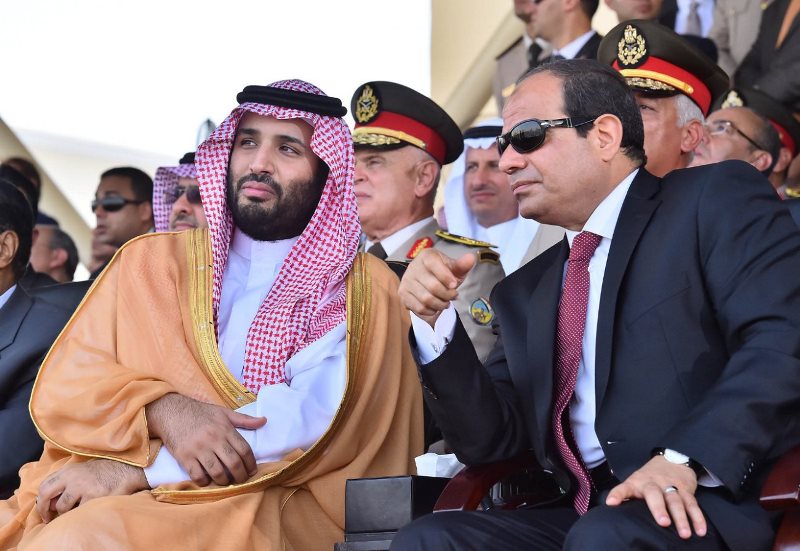Ukraine: Practically there is no such thing as international law which can act as a constraining force against state behaviors

بسم الله الرحمن الرحيم
Views on News
Ukraine: Practically there is no such thing as international law which can act as a constraining force against state behaviors
News:
The European Union and United States have agreed to impose sanctions against Russian and Ukrainian officials deemed responsible for a contested independence referendum in Crimea, officials have said. [Source: aljazeera]
Comment:
Rejecting the results of Crimea’s referendum which showed that a large majority of Crimea’s residents want to join the Russian federation the White House said the vote was held under “threats of violence and intimidation from a Russian military intervention”.
Similar sentiments were expressed by the British Foreign Secretary William Hague who said, “Nothing in the way that the referendum has been conducted should convince anyone that it is a legitimate exercise”. It is ironic and hypocritical that the West should reject the results of a referendum in Crimea held under occupation while it supports and upholds rather presents as a sign of progress, a very similar exercise, and the Presidential elections in Afghanistan due next month. Crimea and Afghanistan are both under occupation. Elections in both areas are and would be held under occupation yet due to their divergent interests in both areas the West supports elections under its own occupation in Afghanistan and opposes elections under the Russian Federation in Crimea.
It is also important to note the scale and nature of Western response to Russia’s occupation of Crimea and to West’s response to Saddam Hussein’s attempt to annex Kuwait in 1990. In the latter case the West mobilized militarily and was able to gather a broad coalition of countries to reverse the Iraqi action. In the case of Russia the West is mainly planning to deploy economic sanctions and employing similar policy tools to hurt Russia economically. The stark difference in approach and its reason is obvious. The West knows it cannot take on the Russians militarily while it was confident that with the help of pliant Muslim rulers of Iraq’s neighbors it can deploy military force against Iraq.
The Ukrainian Crisis is a good lesson in international relations and international struggle. Firstly, there is practically no such thing as international law which can act as a constraining force against state behaviors. The idea of a law governing the relations of a comity of nations is a flawed one because for such a system to work a mechanism for enforcing the law when it is breached must be in place. Such a concept of accepting an enforcer of international law runs directly against the idea of sovereignty of countries which must accept an authority above them. No country which guards its sovereignty would accept such an authority. Iraq was not in a position to militarily defy the US when it was acting as a global enforcer of the so called international law, Russia was. Secondly as is evident from the different interpretations of electoral exercises in Afghanistan and Crimea under almost similar conditions, international law is actually a tool for major powers to shape global opinion and behavior in favor of their interests. Again the impossibility of a consensus amongst countries to agree to a global institution which would interpret international law dispassionately is one reason. The difference in values, cultures and interests of different countries constitute another problem.
The Crimean and Afghanistan examples show that the Muslim World cannot rely on international law and international institutions for protecting their interests. The international law as it exists today is nothing but a tool of the West which exploited the post World War 2 balance of power in its favor to develop a system which protects its interests. This does not mean that Muslims should not play an effective role at a global level rather how and through what institutions should they approach international relations is what needs to be debated. If history is any guide, it was through the institution of the caliphate that the Ummah had a strong and effective voice at the international level where it was able to muster enough economic, political and military might through the institution of the caliphate to shape global opinion and behavior to protect her interests.
Written for the Central Media Office of Hizb ut-Tahrir by
Mueez Mubeen / Member of Hizb ut-Tahrir in Pakistan
بین الاقوامی قانون مغرب کا استحصالی آلہ کار ہے
معیز مبین
کریمیا میں ہونے والے ریفرنڈم میں وہاں کے باشندوں کی اکثریت نے روسی فیڈریشن کے ساتھ الحاق کی خواہش کا اظہار کیا۔اس ریفرنڈم کے نتائج کو مسترد کرتے ہوئے وائٹ ہاوس کے ترجمان نے کہا کہ ریفرنڈم پر ووٹ “روسی فوجی مداخلت کی وجہ سے تشدد اور دھمکیوں کے خطرات” تلے منعقد کیا گیا۔ اسی طرح کے تاثرات کا اظہار برطانوی وزیر خارجہ ولیم ہیگ کی طرف سے بھی کیا گیا جب اس نے کہا: “جس بھی بنیاد پر جس طرح یہ ریفرنڈم کروایا گیا ہے اس کو جائز قرار نہیں دیا جا سکتا”۔ یہ مغرب کی منافقانہ پالیسی ہے کہ وہ مقبوضہ کریمیا کے ریفرنڈم کے نتائج کو مسترد کر رہا ہے جبکہ اگلے ہی ماہ مقبوضہ افغانستان میں ہونے والے صدارتی انتخابات کی حمایت بلکہ ان کو افغانستان کی ترقی کی علامت کے طور پر پیش کر رہا ہے۔ کریمیا اور افغانستان دونوں مقبوضہ علاقے ہیں۔ دونوں میں انتخابات ان کے مقبوضہ علاقے ہونے کی حیثیت سے ہو رہے ہیں۔ لیکن کیونکہ مغرب کے مفادات دونوں علاقوں میں مختلف ہیں اس لیے وہ افغانستان میں اپنے قبضے کے تحت ہونے والے صدارتی انتخابات کی حمایت کر رہا ہے اور کریمیا میں روسی فیڈریشن کے تحت ہونے والے انتخابات کی مخالفت کر رہا ہے۔ 1990 میں عراق کی کویت کو اپنے ساتھ طاقت کے زور پر الحاق کرنے کی کوشش پر جس پیمانے اور جس سختی سے مغرب نے ردعمل کا اظہار کیا اس کے مقابلے میں روس کا کریمیا کو زبردستی اپنے ساتھ الحاق کرنے پر مغرب کے ردعمل میں کمزوری کو نوٹ کرنا اہم ہے۔ عراق کے معاملے میں مغر ب نے عالمی سطح پر مختلف ممالک کے ایک وسیع اتحاد کو تشکیل دیا اور افواج کو متحرک کیا۔ روس کے معاملے میں مغرب نے اقتصادی پابندیوں کو استعمال کیا اور وہ معاشی اقدام کے ذریعے روس کی معیشت کو نقصان پہچانے کی پالیسی پر چلنے کا ارادہ رکھتا ہے۔ مغرب کا روس اور عراق کی طرف لائحہ عمل میں فرق اور اس کی وجوہات واضح ہیں۔ مغرب اس بات سے آگا ہ ہے کہ وہ روسی فوجی طاقت کا مقابلہ نہیں کر سکتا جبکہ وہ پر اعتما د تھا کہ عراق کے ہمسایہ ممالک کے مغرب نواز حکمرانوں کی مدد سے وہ عراق کے خلاف فوجیں تعینات کر سکتا ہے۔ یوکرائن کا بحران بین لاقوامی تعلقات اور ریاستوں کے درمیان بین لاقوامی جدوجہد میں ایک اچھا سبق ہے۔ سب سے اہم سبق جو اس بحران سے ہمیں ملتا ہے وہ یہ ہے کہ ایسا بین لاقوامی قانون جو ریاستوں کے رویوں کو کنٹرول کرے، کا حقیقتاً کوئی وجود نہیں۔ یہ سوچ کہ ممالک کے درمیان ان کے تعلقات کو منظم کرنے کے لیے ایک قانون کی ضرورت ہے ایک غلط سوچ ہے۔ یہ اس لیے غلط ہے کیونکہ ایسے قانون کی موجودگی کے لیے ایک ایسے نظام کی ضرورت ہے جو اس قانون کو زبردستی نافذ کرے جب اس کو توڑا جائے۔ یہ اس چیز کا تقاضا کرتا ہے کہ کہ دنیا کےممالک ایک عالمی اتھارٹی کے وجود کو تسلیم کریں جو عالمی قانون کو تمام ممالک پر نافذ کرے ۔ یہ ایک ایسا تصور ہے جو ریاست کی خودمختاری کے خلاف ہے کیونکہ ریاست کو اپنے اوپر ایک اتھارٹی کو تسلیم کر نا پڑے گا۔ کوئی بھی ریاست جو اپنی خودمختاری کی حفاظت کرتی ہے ایسی اتھارٹی کو تسلیم نہیں کرسکتی۔ عراق فوجی طور پر اتنا طاقتور نہیں تھا کہ وہ امریکہ کے حملے کا مقا بلہ کرتا جب اس نے عالمی قانون کو نافذ کرنے کا بہانہ کر کے عراق پر چڑھائی کر دی۔ روس فوجی طور پر اتنا مضبوط تھا کہ وہ امریکہ کی فوجی طاقت کا مقابلہ کر سکے اور نام نہاد عالمی قانون کا انکار کرسکے۔جیسا کہ مغرب کی افغانستان اور کریمیا میں انتخابی مشقوں کی مختلف تشریحات سے واضح ہے کہ بین الاقوامی قانون درحقیقت بڑی طاقتوں کے مفادات کے حق میں عالمی رائے اور رویے تشکیل دینے کا آلہ کار ہے۔ یہیں سے یہ بات بھی سامنے آتی ہےکہ مختلف ممالک کی ثقافت، اقدار اور مفادات میں فرق کی وجہ سےدنیا کے ممالک کے درمیان بین لاقوامی قانون کی تشریح کے لیے ایک عالمی ادارے کے قیام پر اتفاق کرنا تقریباً نا ممکن ہے۔ کریمیا اور افغانستان کی مثالیں اس با ت کا ثبوت ہیں کہ مسلم دنیا اپنے مفادات کی حفاظت کے لیے عالمی قانون اور عالمی اداروں پر انحصار نہیں کرسکتی۔ عالمی قانون جس کو ہم آج جانتے ہیں ایک مغربی آلہ ہے جس کو دوسری جنگِ عظیم کے بعد دنیا میں طاقت کے عدم توازن کو استعمال کرتے ہوئے مغرب نے اپنے مفادات کی حفاظت کے لیے تشکیل دیا۔ اس کا ہر گز یہ مطلب نہیں کہ مسلمانوں کو عالمی سطح پر ایک موثر کردار نہیں ادا کرنا چاہیے بلکہ اصل میں یہ بحث ہونی چاہیے کہ مسلمان کس طرح اور کن اداروں کے ذریعے بین لاقوامی تعلقات اور بین لاقوامی سیاست پراثر انداز ہوں۔ تاریخ اس بات کی گواہ ہے کہ ماضی میں یہ خلافت ہی تھی جس کے ذریعے امت نے عالمی سطح پر ایک مضبوط اور موثر کردار ادا کیا۔ خلافت کا ادارہ مسلمانو ں کی سیاسی، اقتصادی اور عسکری طاقت کو یکجا کر کے مسلمانوں کے مفادات کے تحفظ کے لیے عالمی رائے اور رویوں کو تشکیل دینے کے لیے ماضی میں ایک اہم کردار ادا کر چکا ہے اور آج بھی مسلمان صرف خلافت کے ذریعے ہی عالمی سطح پر پھر سے ایک اہم کردار ادا کر سکتے ہیں ۔





